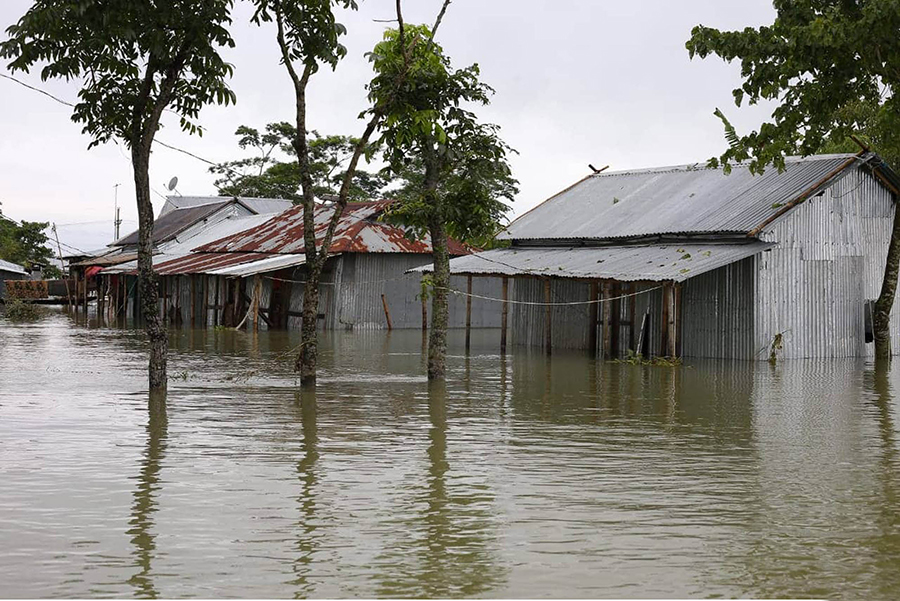
Published :
Updated :

"Bangladesh is used to flooding, but climate change is making floods more intense and less predictable, making it impossible for families to stay safe, let alone plan" anything beforehand. This is how the head of BRAC's Disaster Risk Management programme explained the characteristics of the floods occurring in recent times in this part of the world while talking to the US satellite TV channel. This brief statement highlights the predicament of the people living in flood-prone areas of the country. This year, the greater Sylhet region and its adjoining areas became victims of recurrent floods. At least 2.0 million people were devastated by the second round of flooding last month in Sylhet and Sunamganj districts. Weeks of heavy rains and onrushing waters from the upper region submerged homes and affected farmland. Thousands of families left their homes behind and took refuge in schools and other structures on relatively high lands. Floods caused extensive damage to crops, roads and houses. The natural calamity also took a heavy toll on livestock, poultry, and fish farms.
The worst part of the human miseries seen during the latest floods was that many affected people had to go without food for days together, and none from the administration had felt the need to extend their helping hands. Help and assistance from the local administration and political parties were conspicuously absent in the flood-affected areas. The government at the centre also did not take the latest floods seriously. Not a single cabinet member, not even the minister concerned, bothered to visit the affected areas. Before the flood waters could recede completely, there came the anti-quota movement of students. At a breakneck pace, the movement started spreading like wildfire. The government concentrated all its attention on the job of quelling the unrest. Since the situation continues to be volatile, the administration is unlikely to pay proper attention to issues such as rehabilitation of the flood-hit people.
Undoubtedly, the people of Bangladesh have learnt to live with floods and other natural calamities. They have demonstrated their remarkable resilience and ability against all odds in the event of disasters such as flood and cyclone. However, when disasters come in quick succession, it becomes difficult for the inhabitants of the affected areas to sustain losses. Some districts of Sylhet and Rangpur Divisions have experienced recurrent flash floods this year. Flood waters inundated their homes and crop fields afresh last month when they were busy restarting their life following the first bout of flooding. Now that the flood water has receded and people have returned to their homes battered by floods, it is time the administration extended all possible support to them.
The recurrent floods extensively damaged inter-district and feeder roads in the flood-affected areas. This is, however, a common happening every year. In most cases, the roads --- because of their faulty construction--- easily give in to the pressure of onrushing waters. It is imperative that the department concerned devises an appropriate technique for building durable roads in flood-prone areas. Various government departments have already made assessment of the loss of property in the affected areas. Now, they need to embark on rehabilitating and repairing infrastructures damaged by the floods and extend financial and material helps to the affected poor and low-income families.


 For all latest news, follow The Financial Express Google News channel.
For all latest news, follow The Financial Express Google News channel.